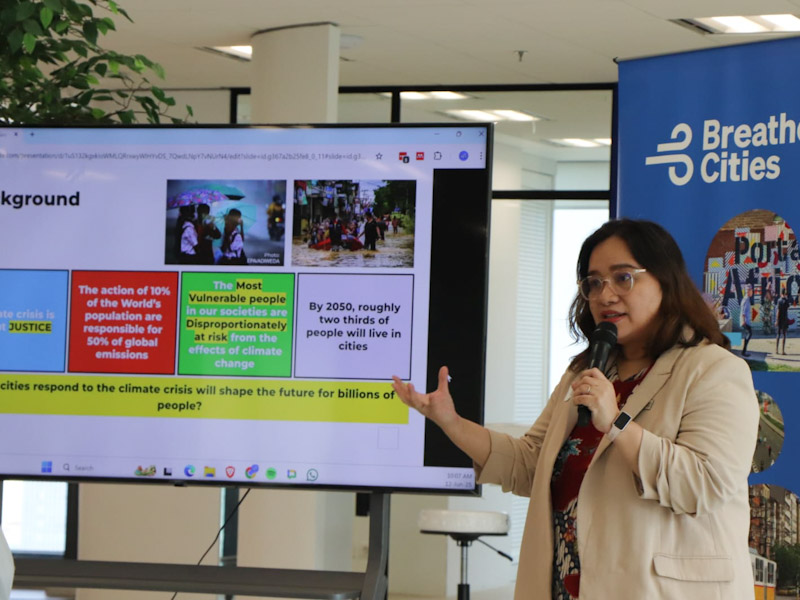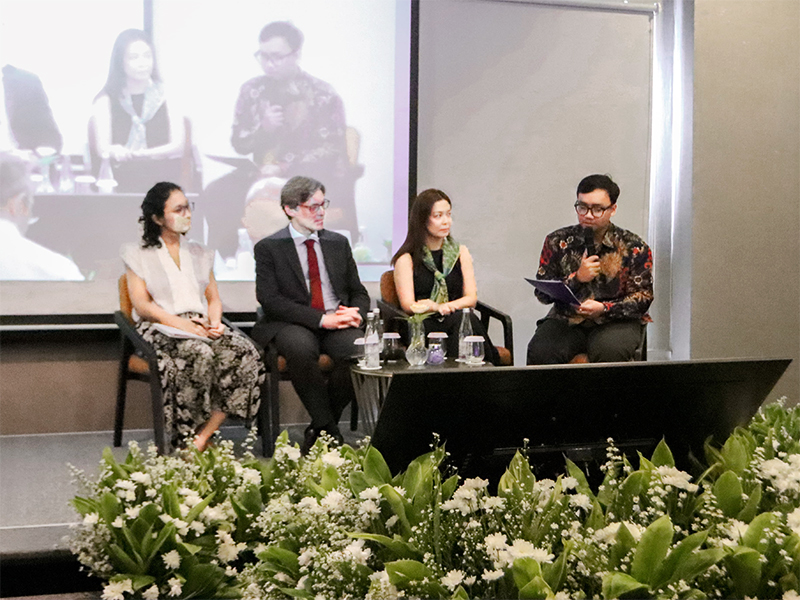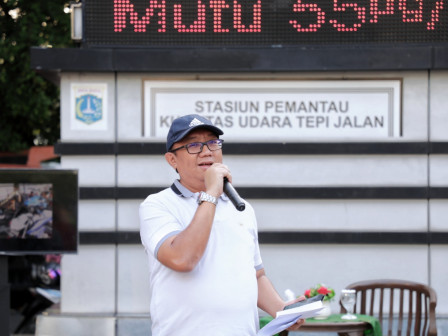Jakarta Develops Integrated Low-Emission Areas
Reported by Aldi Geri Lumban Tobing | Translated by Nugroho Adibrata
The Jakarta Environment Agency, in collaboration with Breathe Cities and Empatika, is organizing a Validation Workshop: Inclusive Needs Study and Equity Assessment to support the implementation of Integrated Low Emission Areas.
Reducing emissions, improving air quality, and enhancing the quality of life
The event held at Jakarta Future City Hub is a manifestation of commitment to air pollution control and climate change management.
This is also part of a series of feasibility studies and the implementation roadmap for the Integrated Low Emission Area (KRE-T), the result of collaboration with the Breathe Cities Jakarta Program, a global initiative from the Clean Air Fund, C40 Cities, and Bloomberg Philanthropies, which is implemented in Jakarta alongside Vital Strategies.
Jakarta Residents Invited to Campaign for Reducing Air PollutionJakarta Environment Agency Head, Asep Kuswanto said, the workshop became an important step in promoting urban transformation towards low-emission and sustainable cities.
He explained Jakarta, as a metropolitan city with the highest rate of urbanization in Southeast Asia, is facing various environmental challenges, including worsening air quality, high greenhouse gas emissions, and risks of extreme climate.
"KRE-T is not just a single policy, but a series of multi-sector interventions aimed at reducing emissions, improving air quality, and enhancing the quality of life for the community fairly and inclusively," he expressed, Friday (6/13).
He explained, it is a continuation of Jakarta's commitment to the Low Carbon Development Plan as outlined in Gubernatorial Regulation No. 90/2021 and Governor Decision No. 576/2023 on the Air Pollution Control Strategy (SPPU).
"SPPU itself focuses on three main strategies, namely improving governance, controlling emissions from mobile sources such as vehicles, and stationary sources such as industries," he explained.
According to him, the Environment Agency keeps supporting collaboration among regional device organizations (OPD) and external parties in supporting this initiative. Jakarta aims to achieve net zero emissions by 2050, and KRE-T is seen as one of the strategic breakthroughs to reach that goal.
He hoped that this workshop could formulate inclusive recommendations and initiatives for KRE-T that align with Jakarta's main vision towards becoming a global city.
City Advisor Breathe Jakarta from C40 Cities, Fadhil Firdaus, stated that emission reduction efforts through KRE-T are more comprehensive by considering other sectors, such as waste management, building construction, energy, industry, land use, and waste management, unlike previous efforts that were more focused on the transportation sector.
In this workshop, strategies are formulated for marginalized groups that are most affected if KRE-T is implemented in several potential locations, and strategies that can be undertaken to meet the needs of the marginalized groups.
"Discussion also focused on the aspects of inclusivity and social justice in designing policies, so that the benefits of KRE-T can be felt by marginalized groups in the planning process and its implementation involves the community," he said.



